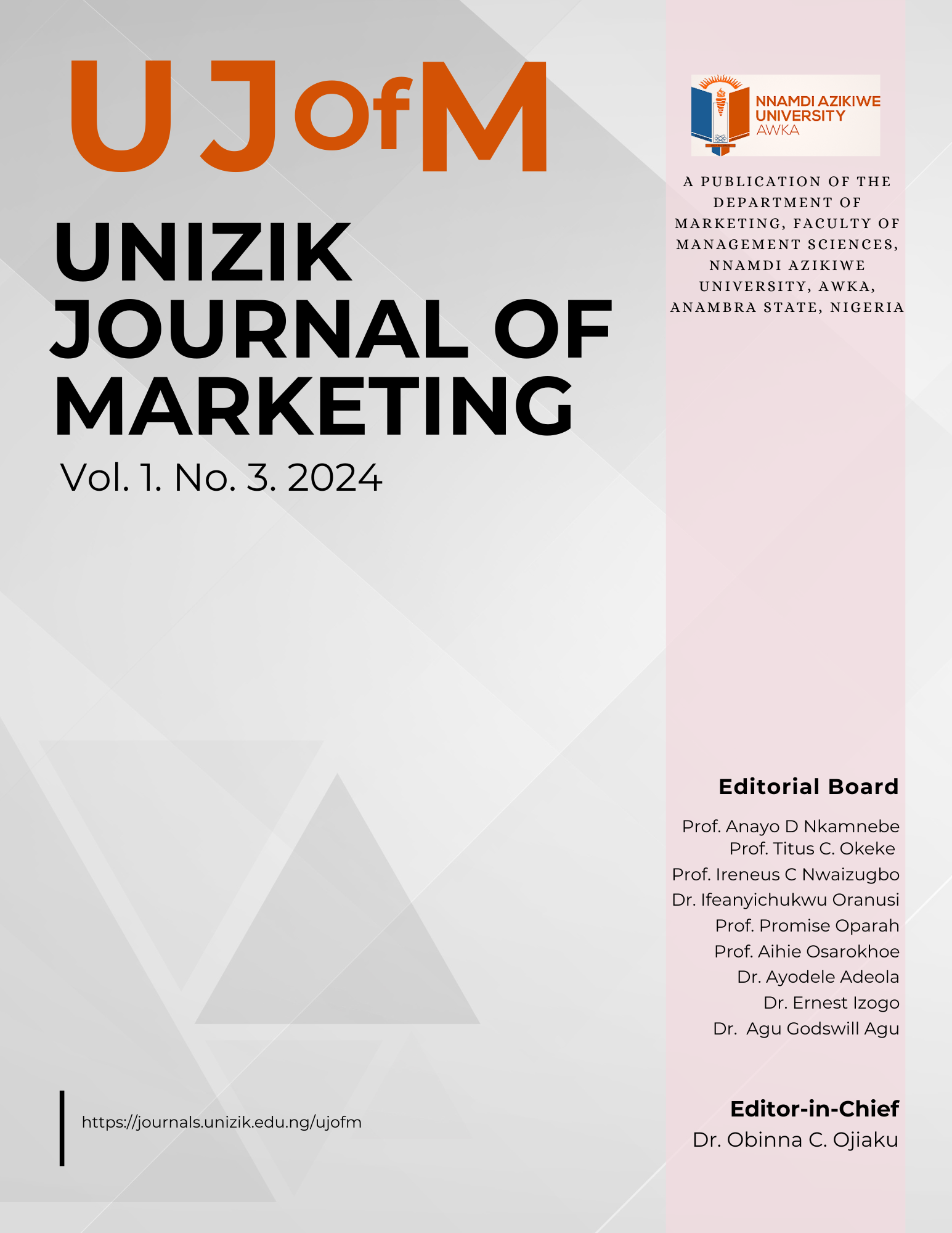Whistleblowing Behaviour: An Empirical Analysis among Nigerian Undergraduates
Keywords:
Theory of Planned Behaviour, Tertiary Institutions, Whistleblowing, UndergraduatesAbstract
This study focused on whistleblowing behaviour among undergraduate students. It examined their perception of whistleblowing and the relevance of the theory of planned behaviour in explaining students' whistleblowing intentions in Nigerian tertiary institutions. A survey research design involving questionnaires was adopted, with the population drawn from three selected tertiary institutions: a federal university, a private university, and a federal polytechnic in Edo State, Nigeria. A sample of 397 students was determined using the Taro Yamane formula for sample size calculation. The total sample from each institution was computed proportionally, and respondents were selected based on convenience across various faculties. Data obtained from the respondents were analyzed using descriptive and inferential statistics. Findings indicated that, although undergraduate students had a positive perception of whistleblowing, they had little knowledge of the concept and the procedures involved. Attitude was found to be a strong predictor of whistleblowing intention among students across the institutions. Subjective norm was significant only in the federal university, while perceived behavioural control was significant in both the federal university and the polytechnic. Based on these findings, the study recommends that tertiary institutions establish explicit whistleblowing policies to facilitate the detection and correction of unethical practices. Efforts should focus on creating awareness and educating students (and staff) about the concept of whistleblowing and the relevant procedures. Whistleblowers should also be rewarded to encourage student participation. Lastly, the study recommends that institutions ensure appropriate punishment is applied to individuals found guilty, regardless of their position or office,

Downloads
Published
Issue
Section
License
Copyright (c) 2024 Dr. Isibor, Osaiga Felix, Dr. Iyahen, Ezekiel Osarumwense

This work is licensed under a Creative Commons Attribution 4.0 International License.

